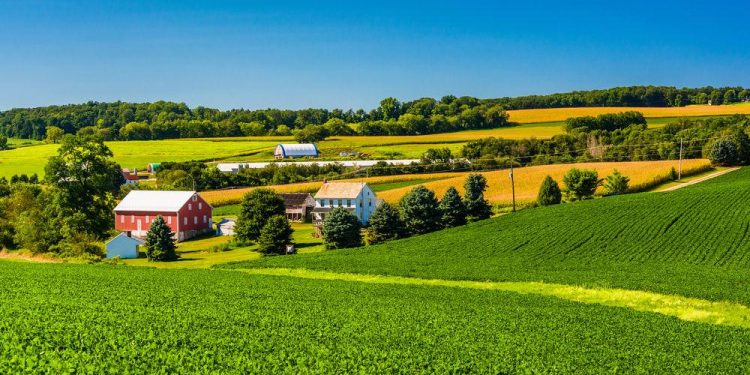By Anthony Hennen | The Center Square
(The Center Square) – A grant program from the U.S. Department of Agriculture will send $20 million to Pennsylvania to restore streams in central Pennsylvania and preserve farmland.
The funding is part of a $200 million initiative, the Regional Conservation Partnership Program, “to address on-farm, watershed, and regional natural resource concerns.” The RCPP was created by the 2014 Farm Bill and has sent out almost 600 awards.
In central Pennsylvania, the Chesapeake Conservancy was awarded about $10 million to restore 18 agriculturally impaired streams. The Conservancy will provide an additional $11.5 million for the work, focused on Centre, Clinton, Huntingdon, Lycoming, Snyder, and Union Counties.
Stream degradation has happened due to nutrient- or sediment-related problems, said Adrienne Gemberling, a senior project manager for the Chesapeake Conservancy.
“In terms of nutrients, that’s generally livestock operations, whether it’s how manure is being handled or livestock having access to the stream,” Gemberling said. “Then sediment, that could be coming from in-field erosion or it could be coming from streambank erosion, or also the livestock having access to the stream.”
To restore the streams, on-the-ground work will be more restoration and maintenance inclined.
“When we talk full-farm restoration, we’re talking about manure stacking structures, streambank exclusion fencing for livestock, tree plantings along the streams, in-stream bank stabilization — all of those types of practices,” Gemberling said.
The work will take place over five years, but the overall project to restore streams is just getting started. The conservancy wants to restore 30 streams by 2030. “Ten million is really the first big investment, but this is going to take quite a bit more money than that to actually accomplish,” Gemberling said.
A ballpark figure, estimated before the pandemic, expected stream restoration to cost $60 million. However, with inflation and the rising prices of materials, that figure is an underestimate.
“Projects are costing about time and a half of what they used to,” Gemberling noted.
The stream restoration is part of a broader issue in Pennsylvania that has seen the commonwealth clash with federal regulators over a cleanup plan for the Chesapeake Bay. Nutrient runoff from Pennsylvania has caused environmental issues in the Bay, which could threaten some federal funding.
The USDA also awarded about $8 million to the Pennsylvania Department of Agriculture for a farmland preservation project. The commonwealth will provide an additional $12.8 million to improve “soil health practices and systems” and “transition producers to organic production.”




